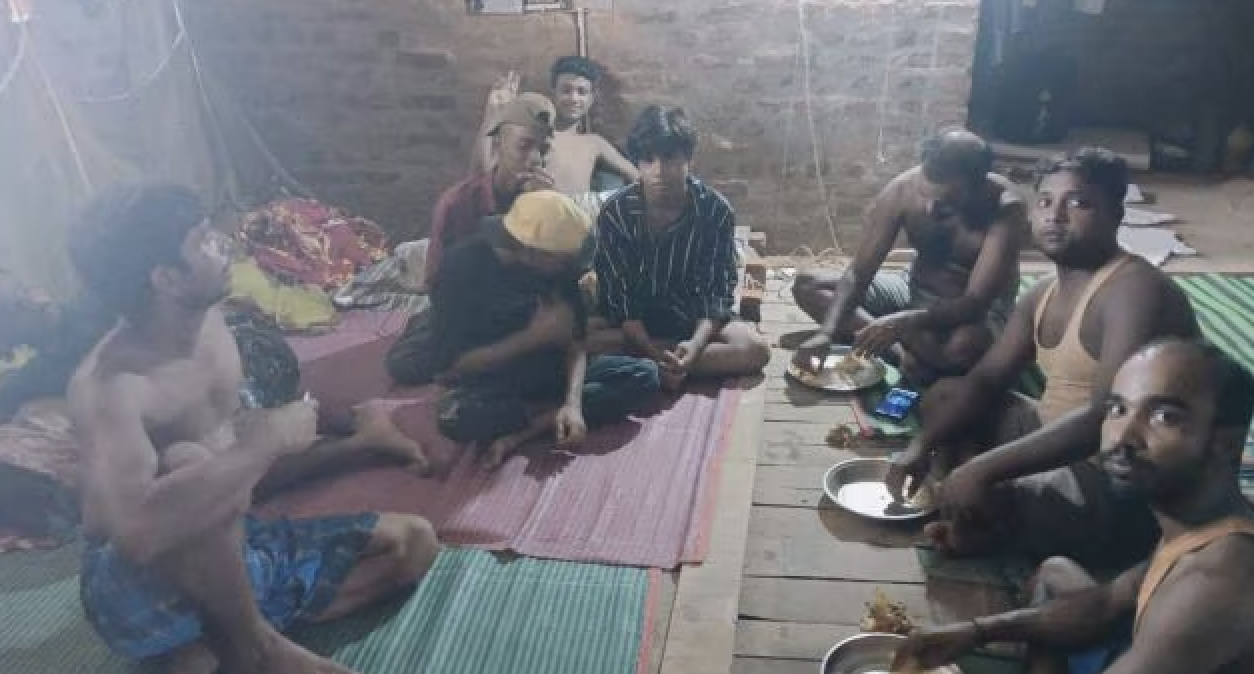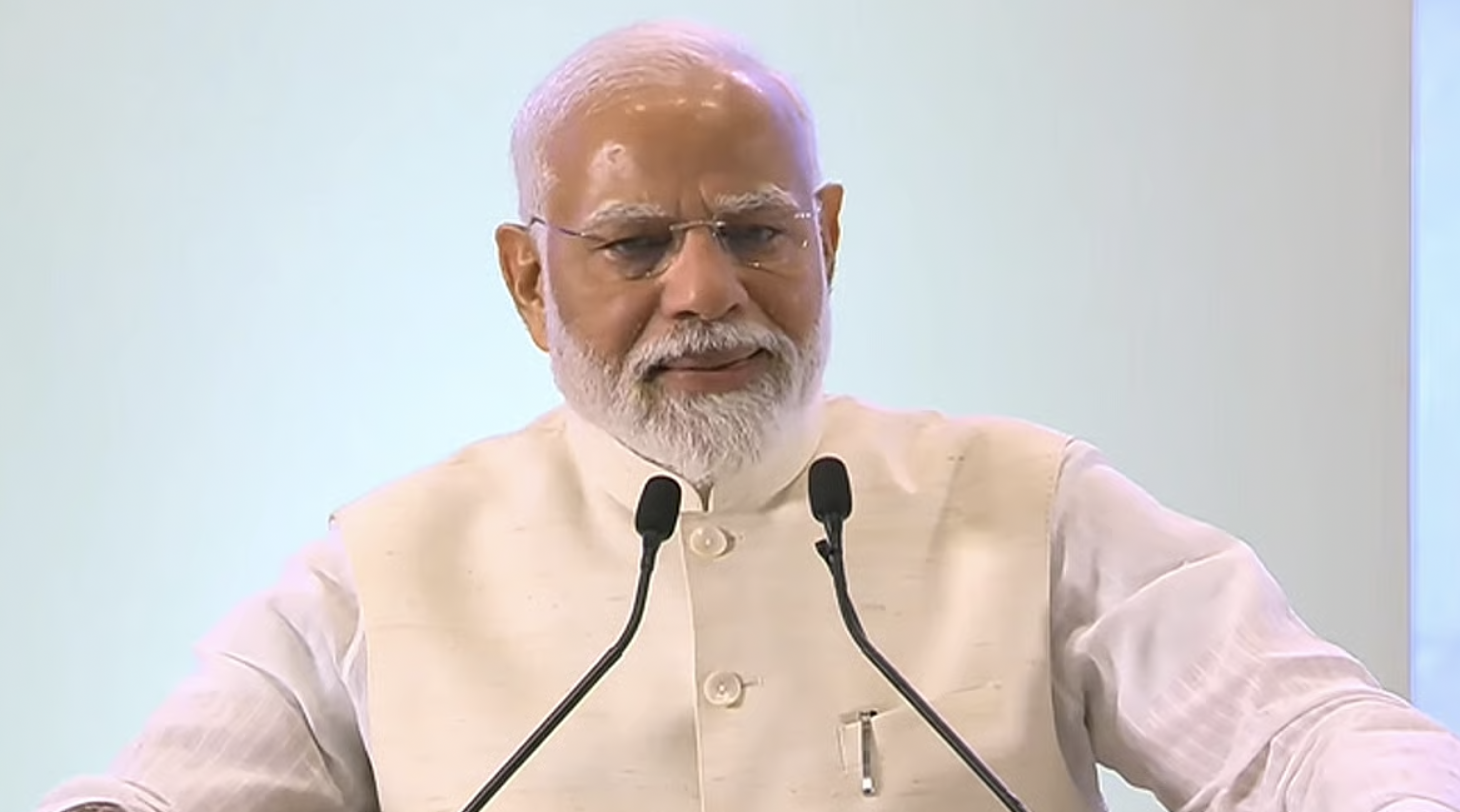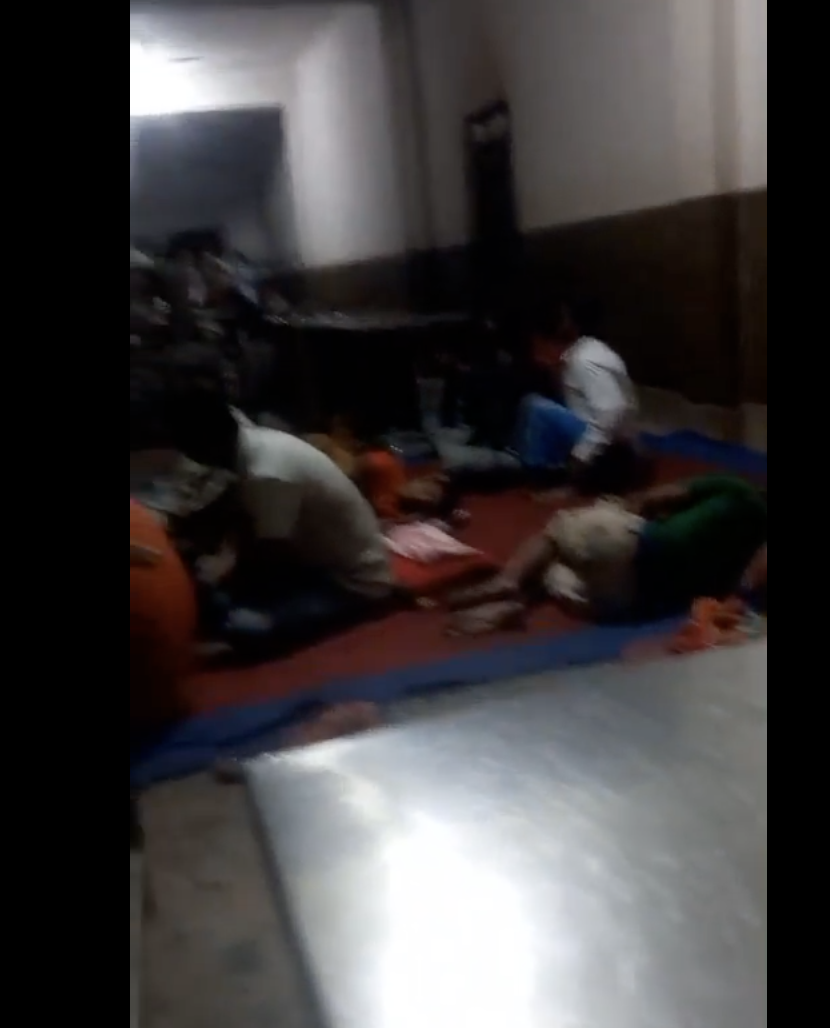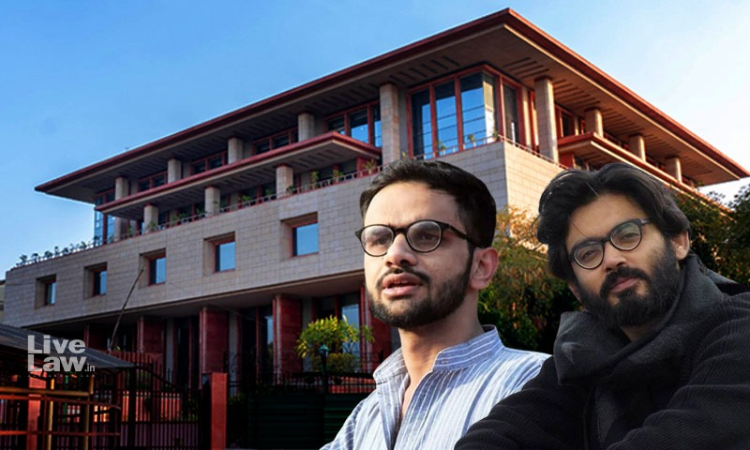
By MEDHA GHOSH
Abdul Kalam Azad is a human rights researcher, community worker, and writer based in Assam. He is working on his Ph.D. thesis on Assam’s citizenship crisis at Athena Institute, Vrije Universiteit Amsterdam. Along with his Ph.D., he has been involved with several research projects such as “Reimagining Citizenship: The politics of India’s amended citizenship laws”, “Making and Unmaking of citizens in Assam”, “Understanding the NRC process: Social workers and community perspectives” and many others.
Along with his academic engagements, he regularly writes for newspapers and journals like The Caravan, The Wire, Scroll, Al Jazeera among others on minority issues in Assam.
At the moment he is involved with the University of York through the “Protective Writing Fellowship for Human Rights Defenders at Centre for Applied Human Rights.”
Excerpts:
Q) You’ve joined the University of York as a visiting fellow. Why was it important for you to discuss the issues of citizenship and statelessness outside India?
Abdul Kalam Azad: What we are witnessing in India today it’s unprecedented. The problem is to such an extent that the international community has to look into it, it has to be aware of the situation in India and especially in Assam. So, when you see that millions of people are on the verge of losing their citizenship, the issue is not only for people within India but also outside India. Everyone should know about it, everyone should speak about it to stop this abuse of human rights, abuse of rights of minorities. So, that’s why I think it should be spoken not only in India but elsewhere as well.
Q) What makes the citizenship process in Assam so complex?
Abdul Kalam Azad: The issue of citizenship is complex because, if you see how this issue has been raised to this stage, you will find a lot of institutions, a lot of mechanisms, a lot of processes involved. It is not something that, you know, when Narendra Modi came and started, it has a long history. In fact, it has a colonial history. When people from my community were brought to Assam to produce more food and then in post-colonial Assam, our forefathers, our ancestors are seen as ‘others’ and today various kinds of mechanisms such as Doubtful Voters by Election Commission, border police that is solely engaged in the citizenship contestation process and then we had the NRC. So there are a lot of historical and contemporary issues, involving a lot of stakeholders. So that’s what makes it complex. Most importantly, when the mechanism of contestation of citizenship is now taken up by the right-wing Bharatiya Janata Party, it has given a new twist. It’s no longer about questioning someone’s citizenship, but also making a tool for religious persecution. So there are a lot of things involved in this process and that’s why, you know, people like us need to speak, we need to share our personal stories and experiences.
Q) Can you share your experience of being an independent researcher? What are some difficulties you’ve had to face in your work?
Abdul Kalam Azad: I do not feel that I’m doing this work for some agency, some organisation, or some institutions. This is my work, and my life is part of this work. So that’s what I feel and that makes me claim that I’m an independent researcher, I’m not influenced by an institution and organisations and individuals.
Whenever working on something like citizenship issues in Assam and now that it has become a national issue, you face challenges from various places, not just the state machinery. There are non-state actors, organisations, individuals who constantly try not to allow you to work. There are many instances. For example, take the example when my friends and I were writing poems as part of a new genre of poetry movement called Miya poetry. So we were writing poetry in our own dialect, sometimes in other languages as well, we’re translating and disseminating those poems. These points were about the experience of people going through this citizenship contestation process and also other forms of discrimination and marginalisation. When he started writing this, there were multiple police cases against us by Assamese nationalist organisations, members, and also Hindu nationalist organisations. So it is not just the State but also institutions and organisations who are constantly trying to disenfranchise us, trying to dehumanise us.
Q) Going through some of your work, it is very evident that the background of NRC is complex and sometimes it is overlooked when we discuss citizenship in Assam. Can you share a historical overview of the NRC?
Abdul Kalam Azad: Yes, it is complex. In 1826, Assam became a part of colonial India. When our colonial masters went to Assam, they saw a huge area, sparsely populated with a lot of natural resources, and they tried to extract these natural resources to inflate their revenue account. The first thing that they did was they brought in the Adivasis from Central India to work in tea gardens and tea became one of the most profitable enterprises for the colonisers. When they brought in a large number of Adivasi workers to work in tea gardens, especially in Upper Assam.
The repercussions were manifold and one of them was food shortages. To address the food shortage, his British colonizers decided to bring peasants from overpopulated Bengal. These peasants are our forefathers, our ancestors. So when they were brought in, they were brought in a large number during the period of 1905. However, by the 1920s the local populations especially the middle class, politically aware and motivated people opposed it saying that this influx of people from Bengal puts their culture, language and resources at stake. To deal with this, the British decided to create a demarcation and it was the first segregation was made. That demarcation is known as the Line System.
Under the Line System, the Bengali Muslim peasants were settled in marshy riverbank areas. They were not allowed to settle in the mainland, they were not allowed to integrate with the civil society. However, people from my community tried to keep peace with the local community, they tried to learn the Assamese language, they tried to imbibe the Assamese culture. Even in official forms, they renounced their Bengali identity and accepted Assamese identity and Assamese as their official mother tongue. However, during the late 1940s, when the Muslim League began advocating the Two-Nation Theory, the Muslims of Assam faced the brunt of this. During partition, Muslim-dominated Sylhet was given to Pakistan and the people of my community decided to stay back in India. Post partition Assam witnessed a huge riot, many of our ancestors were forced to flee the country and take shelter in Pakistan. Then in 1951, we saw the first NRC. Thus, the contestation of citizenship and belonging started soon after the partition.
Another 10 later, the Prevention of Infiltration of Pakistanis (PIP) laid the basis of two important instruments of contestation that we see today: Foreigner’s Tribunal and the Border Police. In between 1964-69, official data says that 1,92000 people were forcefully deported. After this, during the Assam Agitation hundreds and thousands of people were killed. In the district of Nellie, unofficial figures suggest that nearly 3000 people were killed in broad daylight. Similar massacres happened in Nagabandha as well. These issues form the background of citizenship contestation in Assam.
Q) People are claiming that the CAA is a second partition. What do you think of this?
Abdul Kalam Azad: Yes, a lot of people say the CAA is a second partition. The basis of partition was that one set of people who said that India cannot be a secular country and Muslims cannot be allowed to live in India. The other set of people said that the idea of India is a secular country and unity in diversity, living peacefully with equal rights for all. After so many years, today, we are seeing that the ruling dispensation is hell-bent to prove that Jinnah was right. I think the CAA is trying to say that India is not a secular country. The partition is based on that idea. It pains me to say that it is a second partition. The way Muslims are being singled out, are being denied their stakeholding in their land, it is a partition.
Q) Citizenship is also a gendered issue, especially this one. Why is it difficult for women especially to collect proof of their citizenship?
Abdul Kalam Azad: It is not just the state machinery that is making it challenging for women, especially Muslim women in Assam to save their citizenship because in our society we see that a large section of Muslim women is not getting an education, not getting proper ownership of her immovable properly, especially land rights. These are the fault lines within the society that are being meticulously used by the state machinery to further their agenda. For example, when illiterate women are married at an early age and sent to their in-laws, they don’t have any documentary proofs in their parental address. When NRC asks these women to prove their connection with their parents, they are failing to do so because they’ve been married off at an early age before attaining the legal age of 18. Their voter registration was also done at her in-law’s place and they don’t have any proper educational certificate which is acceptable by the state. So, at the societal level, she doesn’t have any linkage and the State is demanding proof of their claim. This is why a large number of Muslim women who are seen as non-original inhabitants face a lot of problems. As many as 2.7 million women from non-original inhabitants communities had to give consent certificates to prove linkage. A huge number of such cases are excluded from NRC. Similarly, in the case of D-voter, Reference Case in Foreigner’s Tribunal to prove your citizenship, the land document is a strong document but Muslim women in Assam do not have land ownership. By law, they should receive land by inheritance but in practice that is not the case. So at one, there is a societal problem and on the other, the State is using this fault line to target Muslim women.
Q) There have been a lot of allegations against these Foreigner’s Tribunals for being discriminatory and the process being too arduous. How would you judge this whole situation?
Abdul Kalam Azad: It has been discussed in the media, academia, and civil society. Now I think that everyone understands that the Foreigner’s Tribunal, despite being a judicial body, is working as an extended arm of the government. Several members of these Tribunals have been sacked from their jobs for not producing as many foreigners as the State wants them to. That speaks volume the way it’s functioning. The members of these tribunals do not have judicial training, judicial experience. Lawyers with as little as seven years of experience are being recruited and they’re being given the task of deciding something like citizenship. It has been very evident if you go through the cases where you will see that someone is declared as a foreigner because there is a spelling mistake, someone is declared as a foreigner because there’s a mismatch in the calculation of age. There are cases where someone is declared a foreigner because she has not mentioned her uncle’s name in her written statement. So it’s this kind of illogical thing that is happening inside the Foreigner’s Tribunal. I know a case where the tribunal implicated one woman, though there was no case, no reference against her but because the tribunal could not declare her husband as a foreigner, the tribunal implicated her and declared her a foreigner, and sent her to the detention camp. So this kind of thing is happening inside the Foreigner’s Tribunal.
Q) How has the Covid-19 pandemic affected this entire process?
Abdul Kalam Azad: When Covid entered, people said that this is a great equalizer. However, when it comes to people with contested citizenship, who are excluded from NRC, who are officially rendered stateless, for them it is a pre-existing disease. Just like someone with high blood pressure is more vulnerable to covid, similarly, these people with contested citizenship are more prone. I know cases where not only the State but also civil society have abandoned these people. The Government of India took some policy decisions for the poor such as providing them rations, direct gas transfer. However, those who are declared foreigners, cannot get access to such facilities. They couldn’t get facilities like cash benefits because when someone has contested citizenship, they can’t have a bank account. So these types of issues made their lives more difficult. I have interviewed people who have told me that even the NGOs are not providing them any relief, they’re abandoned right in the middle of a pandemic.
Q) In the final NRC update in 2019, about 1.9 million people were excluded. What will happen to them now?
Abdul Kalam Azad: These people are in perpetual limbo. They will have to go through the Foreigner’s Tribunals but before that the authorities will have to provide them rejection slips, stating on what grounds they have been rejected. However, the government is not able to do that because they do not have a proper explanation for their exclusion. So it is getting delayed. Getting delayed doesn’t mean it’s not affecting the people. Being excluded from NRC affects every stage of their lives. For example, those who were excluded were asked to give their biometric information to the Government during the process, and not just 1.9 million but actually, 2.7 million people’s biometrics are locked by the Aadhar system and these people don’t have an Aadhar Card. Since they don’t have an Aadhar card, they don’t qualify for any social security benefit from the Government. So they are already otherised in the system. Secondly, the Government recently carried out a brutal eviction drive in Assam. In the Gauhati high court, the government gave an affidavit saying that they will provide rehabilitation grants to only those who have their name in the NRC. So, those who have been arbitrarily removed from NRC, won’t receive any such rehabilitation.
Q) I was reading about this case in one of your research journals where in September 2019 a Muslim family who had their papers dated back to 1927, were not included in the list because of an objection filed by an individual, anonymously. Can you talk about how such objections can be countered?
Abdul Kalam Azad: When the NRC process was nearing its end, some nationalist organizations, individuals, journalists were making huge noise as to why people were not objecting against the included persons in the list. So, in the NRC mechanism, there is both provisions for both objection and claim. This objection provision instigates people to act against inclusions in the NRC. So, coupled with this provision, several nationalist organizations, media and individuals filed several lakhs of objections. Once such objections are filed, the authorities send a notification to the concerned person, and they have to again prove their claim of citizenship.
Q) For a country that celebrates Mental Health Month, it is shocking to see that there has been no discourse on the psychological impact that the people have had when they are going through the citizenship process. Can you shed some light on this issue? How has it been mentally for those who are fighting this fight?
Abdul Kalam Azad: India, in general, is not in very good shape to address and acknowledge the problem of mental health. But when it comes to the mental health problem of people affected by NRC and similar projects, it’s far, far dismal. I have been documenting the cases of suicides related to citizenship contestation issues and in most of these cases, what I came across from the testimony of the family members is that these people were going through a huge mental health challenge. The fear of detention was so high, so heavy, so paramount that people started believing that, detention would be something worse than living and this fear of life, when you don’t even have control of own body that motivated a large number of people to commit suicide and it is not only those who committed suicide, suicide is the extreme state. Before suicide, we find that there are many stages of anxiety, depression, sleeplessness, the disintegration of your daily functioning. I know stories like this, in the middle of the night, an illiterate person, opening the trunk, looking at the papers, again, closing the truck, after-hours repeating the same thing over and over again. The fear is unimaginable. Besides, it is also a community problem. You won’t find a single person, especially from my community, who can say that I am not going to be affected by the system. People like army officers who have spent their youth defending the country are being dragged out of their homes and sent to detention centers. That is the reason it created a panic situation for everyone. No one is in a state of confidence that they can claim that their citizenship won’t be questioned. Even those who are included in the NRC, are nervous because soon after the publication of the list, the State has mentioned that they have other instruments to question citizenship. So there’s no end to it and makes it a universal threat.
Q) In 2019, after enacting the CAA, there were widespread protests by Axomiya activists. So why do you think the BJP could still form the government in Assam for a second time?
Abdul Kalam Azad: It’s very interesting. In the protests we witnessed in Assam and the protests elsewhere in the country, there’s a fundamental difference. The difference is the protest we’ve witnessed in other states was because the CAA threatened the secular credentials of the Indian constitution because it discriminated against Muslims because it threatened the basic tenets of our secular society. However, in Assam, the motto of the protest was something else. In Assam, the focus was on this question that CAA will give citizenship to Bengali Hindus and we want neither Hindus nor Muslims. In Assam, no one protested against CAA saying that this is discriminatory to Muslims, this is a threat to secularism. In Assam, the protest was against the issue that CAA will provide citizenship to Bengali Hindus. I know it’s a very heavy claim to make but the BJP has been successful in co-opting the entire movement and to a great extent the Assamese nationalism. If one sees the people who are in the government today, most of them were members of Assamese nationalist platforms like All Assam Students Union or Asom Gana Parishad. The previous Chief Minister Sarbananda Sonowal was also involved with AASU. So, BJP has been successful in co-opting Assamese nationalism so it has become Hindu nationalism, and they have somehow accepted the Bengali Hindus as part of Assamese imagination and excluded the Bengali Muslims or commonly known as Mia Muslims from that imagination. Muslims are isolated in the state which has helped the BJP to gain power.
Q) So, what would you say is the way forward with this problem? Do you think that this issue can be solved at all? If so, then how?
Abdul Kalam Azad: For India to get back to prosperity and development this issue has to be solved. We are in a very bad shape so to solve this problem, everyone will have to speak out, especially the Opposition. The Opposition will have to address this the correct way. We will have to accept what is happening, we have to accept that Muslims are being discriminated against and victimised. If we shy away from accepting this, the problem cannot be cured. So, what I feel is that everyone should speak about these violations this discrimination and seek appointment and answer from the ruling establishment.
Q) Lastly, do you think that the issue of CAA-NRC will play a major role in the 2024 elections?
Abdul Kalam Azad: The state of Assam especially the Assamese nationalism has given a ready-made performa for the BJP to replicate it in the entire country. So BJP will try to replicate it in other states. They have understood that hating Muslims is beneficial for them. It fetches them votes. So, they will try to do it. The responsibility is upon those who understand this as a problem, they will have to speak out against this. In many of the conversations, we will find that it is being said that we should not give the opportunity to BJP to polarise but until and unless you accept the reality and speak out, BJP will continue to polarise.
This story first appeared on maktoobmedia.com






